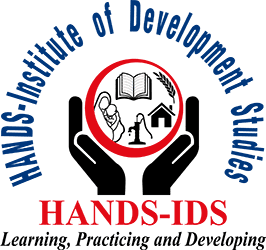UNDERGRADUATE PROGRAMS
Department of Busniess Administration (DBA)
Department of Development Studies (DDS)
Development Studies
Leadership and Community Development
Four-year degree programs
Programs Offered at the Department of Business Administration
Bachelor’s degree programs;
| S.No | Programs Offered | Duration |
| 1 | BBA | 4 years |
| 2 | BS (F&A) | 4 years |
| 3 | ADBA | 2 years |
The Department of Business Administration (DBA) is an academic department and its primary focus is on teaching and researching various aspects of business management and administration. The department offers degree programs, such as Bachelor’s, Master’s, M. Phil, and Doctoral degrees in Business Administration. These programs aim to provide students with a comprehensive understanding of the principles and practices involved in managing and operating businesses effectively. Key areas of study within the Department of Business Administration may include:
- Finance and Accounting: Covering topics related to financial management, corporate finance, investment analysis, and accounting principles.
- Marketing: Focusing on marketing strategies, consumer behavior, market research, and advertising.
- Operations Management: Dealing with the management of production processes, supply chain, and quality control.
- Human Resources Management: Concentrating on recruitment, employee training, performance evaluation, and organizational behavior.
- Strategic Management: Addressing long-term planning, business decision-making, and competitive analysis.
- Entrepreneurship: Exploring the concepts and skills required to start and manage new ventures.
- International Business: Examining the challenges and opportunities of conducting business in a global context.
- Organizational Behavior: Studying the behavior of individuals and groups within organizations, including leadership and motivation.
- Business Ethics: Analyzing the moral and ethical dilemmas faced by businesses and how to address them.
- Information Technology Management: Focusing on the role of technology in business processes and decision-making.
Students in the Department of Business Administration gain practical skills through case studies, internships, and projects. Additionally, research conducted within the department aims to contribute to the advancement of knowledge in the field of business administration.
Vision of DBA
To cultivate a cadre of business students who will emerge as visionary leaders to navigate and excel in the dynamic and competitive global business landscape.
Mission of DBA
To provide a top-tier curriculum which empowers future business leaders to excel in the ever-evolving national and global economic landscapes through innovative education, that emphasizes on professionalism, leadership, ethics, accountability, and real-world relevance.
Core Values of DBA
The Values of Department of Business Administration are inspired by the HANDS IDS values, which alongside seeking to instill in learners the love of scientific knowledge, couples it with an ethical and social responsibility orientation, and engages faculty members and learners alike in community and society relevant activities. Further, Department of Business Administration aims to instill the following core values to all its students:
- Professionalism, and Ethical Values.
- Culture of Freedom and Accountability
- Climate of Entrepreneurship and Innovation.
- Focus on Business Leadership & Transformation.
Goals and Objectives:
Specifically, the goals and objectives of Department of Business Administration are:
- To attract, educate and graduate students who will be equipped with the knowledge and skills necessary to succeed in a diverse, global business environment through Communication Skills, Leadership Skills, Innovative Skills/tactics.
- To foster a research culture to make our students understand the mechanisms of the global economy.
- To enhance technological operations, the physical infrastructure and environmental awareness to provide a supportive teaching, learning, and working environment.
- To develop, maintain and enhance collaborative relationships with other higher academic institutions.
- To provide a conducive environment for teaching-learning process to enable students and faculty to be highly motivated.
- To provide experiential learning through industrial collaboration, case studies, and self-development programs.
- To incorporate entrepreneurship and corporate social responsibility (CSR) in the curriculum of business students.
Work Experience: Work experience is not mandatory for undergraduate programs, but for the MS/Mphil and Ph.D. programs, candidates with relevant professional experience is required.
Letters of Recommendation: Applicants might need to provide letters of recommendation highlighting their academic or professional achievements for admission in MS/Mphil and Ph.D. Programs.
Interview: The HANDS IDS will conduct interviews to assess candidates’ suitability for the program.
2. Career Prospectus
Graduates of the DBA program have a wide array of career opportunities across various industries. Some potential career path includes:
Business Manager: Overseeing day-to-day operations, managing teams, and making strategic decisions.
Marketing Manager: Developing and implementing marketing strategies to promote products or services.
Financial Analyst: Analyzing financial data, making investment recommendations, and assessing financial risks.
Human Resources Manager: Managing recruitment, employee development, and organizational culture.
Consultant: Providing expert advice to businesses on various management and strategic issues.
Entrepreneur: Starting and managing one’s own business venture.
Supply Chain Manager: Overseeing the end-to-end supply chain process for efficient operations.
Project Manager: Planning, executing, and monitoring various business projects.
Market Research Analyst: Collecting and analyzing data to provide insights into market trends and customer preferences.
Business Development Manager: Identifying and pursuing growth opportunities for the organization.
